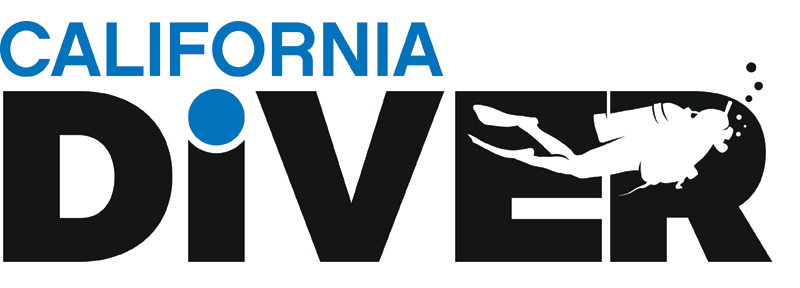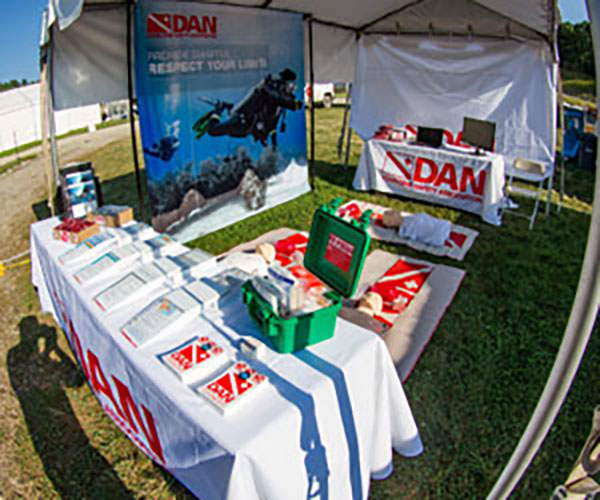Widespread CPR training has been shown to increase survival rates in certain types of cardiac arrest by as much as 22 percent, and evidence shows that hands-on training is the most effective way of ensuring long-term skills retention.
When asked to support the 2017 National Scout Jamboree with CPR training and safety outreach initiatives, Divers Alert Network enthusiastically answered the call of duty. With more than 40,000 Boy Scouts, leaders, and parents in attendance, the National Jamboree offered an extraordinary opportunity for DAN to nurture a culture of safety among youths. Held in July 2017 at the Summit Bechtel Reserve in New Hope, West Virginia, the Jamboree was the latest of the quadrennial meetings of all national Scout troops and guests from the international scouting community.
With more than 40,000 Boy Scouts, leaders, and parents in attendance, the National Jamboree offered an extraordinary opportunity for DAN to nurture a culture of safety among youths. Held in July 2017 at the Summit Bechtel Reserve in New Hope, West Virginia, the Jamboree was the latest of the quadrennial meetings of all national Scout troops and guests from the international scouting community.
Even for trained professionals, CPR can be a challenging skill to master. The use of analog manikins and the infrequency of refresher courses often leads to loss of proficiency and ineffective CPR administration. To address this, and to challenge the Scouts in a fun and educational way, DAN provided a CPR Challenge event using an electronic patient simulator. The simulator — which measures the effectiveness of compressions, ventilations and airway management — displays resuscitation data and cues on a monitor in real-time.
Participants and their instructors can see the effects of their efforts, and the results are often illuminating as previously unknown skills deficiencies are identified. Scouts were challenged to perform two-person CPR on the electronic manikin and scored on their performance. Top scores in the CPR challenge won DAN First-Aid Kits, and all Scouts went home with a special DAN National Jamboree challenge coin, educational materials, and stickers. The challenge reinforced the importance of training and regular skill refreshers for all participants, highlighting the fact that recently trained Scouts could often out-perform physicians and professional healthcare providers who had not regularly practiced CPR.
“The synergy between DAN’s Mission and the Boy Scouts of America, whose motto is ‘Be Prepared,’ offers the perfect opportunity to build and strengthen a culture of safety among the next generation,” says DAN President and CEO Bill Ziefle. “During the Jamboree, DAN not only trained nearly 2500 Scouts in CPR techniques but also provided first-aid and dive safety information to nearly 25,000 participants. Outreach of this type is extremely important, both in increasing first-aid and CPR awareness and in supporting those who would like to learn to dive safely. We would like to thank DAN Board Member Kathy Weydig for introducing us to this opportunity.”
In addition to the CPR Challenge, DAN outreach at the event also included logistical support for Jamboree staff and volunteers, along with education and consultation to participating troops, non-profit organizations and businesses with connections to the diving community.
“The DAN CPR Challenge was a big hit with the Scouts,” says Mike Meenehan, Leader of the Jamboree Scuba Team. “On behalf of the BSA and the scuba activity staff, I want to express my sincere thanks for DAN’s efforts at the Jamboree and support of the scouts.”
CPR and first-aid training are proven, lifesaving skills that all dive professionals should not only have, but also teach. Since cardiac disease is implicated in 30 percent or more of diving incidents, and is the number one killer worldwide, everyone should be prepared to respond or aid in response with CPR skills. DAN encourages all dive instructors, divemasters and dive leaders to earn their DAN Instructor rating and offer this training to their students, certified divers and community at large. The DAN Diving Emergency Management Provider (DEMP) instructor course — which covers four foundational first responder programs, including Basic Life Support (CPR and First Aid), Neurological Assessment, Emergency Oxygen, and First Aid for Hazardous Marine Life Injuries — provides skills all recreational divers and non-diving community members should have in their “response tool box”. DAN First Aid and CPR courses meet the 2015 ILCOR and American Heart Association standards, and are US Coast Guard and American Camp Association approved. Find a DAN Instructor Trainer today to learn more and start your training.

